Our heartfelt thanks from Twala Trust
The huge difference you are making to dogs doing it tough, their people, and other beings
Photo: An animal welfare lesson for children at Doggy Tuesday, with Kennel Manager Wadzanai.
Hi Everyone,
I want to post, in full, this beautiful thank you message from Sarah Carter, Founder of Twala Trust Animal Sanctuary. As you may know, paying subscribers contribute regularly to Twala, and Sarah asked us to help specifically with sponsorhip of the Doggy Tuesday program, about which she writes below.
Warmest wishes,
David
The Doggy Tuesday programme at Twala Trust in Zimbabwe provides lifetime care for 600 rural dogs in households in Goromonzi that have no formal income. We provide free and unlimited veterinary care, from vaccinations and sterilisations to treatment of any illness or injury, including if necessary major surgical procedures. The dogs are provided with supplementary food, both at our weekly Doggy Tuesday event at Twala where we serve an All Day All You can Eat Doggy Buffet, as well as food to take home to supplement the meagre household scraps most rural dogs exist on.
Doggy Tuesdays incorporate a pop up outdoor library for young dog owners who can read, draw and be creative in the company of their friends and their dogs; a rare few hours of fun and relaxation for these children, many of whom are not attending school and who spend their days engaged in manual labour. Children and the elderly are the people we see most at Doggy Tuesday as their bonds with the dogs are particularly strong.
We are so grateful to David Michie, his Substack Subscribers, and those who have generously made direct donations via the Michie Foundation/GDG for funding the community outreach part of our Doggy Tuesday programme. This allows us to continue with home visits to the elderly dog owners and dogs in our community who are too frail to walk to Doggy Tuesday. This is such an important part of the programme as it means vulnerable members of the community who rely on their dogs for protection and companionship can access the care their dogs need. It also keeps us connected to the community and provides us with accurate information as to what is happening on the ground. Dogs are checked by our vet nurses and provided with food, and other animals at the homestead may be treated too.
Gogo Mairos bringing in Big Danger for his annual rabies vaccination
One dog we visit regularly at his homestead is a favourite with the staff and the volunteers – fluffy and charming Danger is a wise old boy who does an excellent job of providing protection and companionship for his very elderly owner, Gogo Mairos. He needed his rabies vaccination this month, so we sent our truck for him and Gogo Mairos so Danger wouldn’t feel scared in the vehicle by himself, and he got a full check-up, his vaccinations and de-wormer, and his least favourite part, a tick and flea bath.
But he was a very good boy and thoroughly enjoyed the All You Can Eat Doggy Buffet afterwards. How truly special these old dogs are, who we have known for a decade and are so much a part of our community. They are, to me, the best part of Doggy Tuesday and a wonderful measure of the difference this programme makes to the dogs and their owners.
Veterinarian Dr.Vinnay Ramlaul (left) and dog handler Ali on a community household visit to treat a dog.
Recent research in a rural area of Zimbabwe shows that most rural dogs die before the age of three, from malnutrition, disease and a general lack of care due to poverty and the incapacitation of the government veterinary services in most rural areas. To see our ten to twelve year old Doggy Tuesday dogs coming slowly down the road on their stiff legs, tails aloft and frosted faces lit up at the prospect of a really good meal and the gentle attentions of the Twala staff each Tuesday is truly uplifting and life-affirming.
The drought has decimated the communal lands of Goromonzi and we are checking in with the elderly dog owners as often as possible. On our travels we met Gogo Rhoda and her very small dog, Danger. They live alone on a hillside and eke out a truly bare bones existence on a miniscule state pension from her late husband, and money that her daughter sends sporadically from South Africa.
Little Danger guarding Gogo Rhoda’s house
Danger may be small and young, but he is clear that his life mission is to protect Rhoda. He barked ferociously at us when we arrived, and never left his owner’s side, spurning the offer of biscuits even though he was so clearly hungry. He sleeps on a scrap of blanket on the doorstep of Rhoda’s house, and when she went inside, he immediately took up his sentry position there with his little ears to attention to be sure not to miss a thing.
Little Danger
We left a bucket of dog kibble for Danger and explained that she could bring him to Doggy Tuesday each week or we would visit again in -a couple of weeks’ time. The next Doggy Tuesday, Rhoda and Danger arrived, having walked about 8km in the heat, both tired, thirsty and dusty. Danger was vaccinated, had his first bath (much to his horror), ate a bowl of chicken almost as big as himself, and then they set off on the long walk back home with a bag of dog kibble and a bottle of puppy milk (recycled plastic drink bottles that we fill with dog meal and donated expired powdered milk to give puppies a nutritional boost). We have seen them every week since, a testament to the value placed upon these rural dogs who provide unquestioning protection and companionship to the elderly and young in our community.
Gogo Rhoda with Little Danger at his first Doggy Tuesday
Taking our international volunteers into the community allows them to experience a side of life in Zimbabwe that tourists do not see. It also puts Doggy Tuesday and our human/wildlife conflict mitigation work into context. Through the dog owners in the community who have come to know and trust us, we receive reports of pythons, owls and other wildlife who have ventured into human settlements and are themselves in danger, as well as the larger animals posing a potential threat to people. Rather than the animals being killed, we can either move them to a safe location or educate the homestead owners on why having the animals there benefits them; for example, owls keep the rat and mouse populations under control.
Sekuru Nhara has been incapacitated by a stroke. We are happy to be able to keep his faithful companion Nala fed and cared for through our community visits. Pictured with American volunteer Ginger.
Thank you to everyone who helps to support this community programme through subscriptions and donations. The positive effect you have on our community is profound and long lasting, and we are so grateful for the kindness.”
To help Twala continue their valuable work, which receives no Government support, please consider becoming a paying subscriber to this newsletter:
If you would like to make a direct donation to Twala Trust, please click the button below, which will take you to the Twala portal for donors.
If you are resident in USA, UK, Australia, New Zealand or the Netherlands, you will receive a receipt recognised as tax deductible by your Government. This facility has been established by Twala in partnership with the Michie Foundation and Global Development Group.




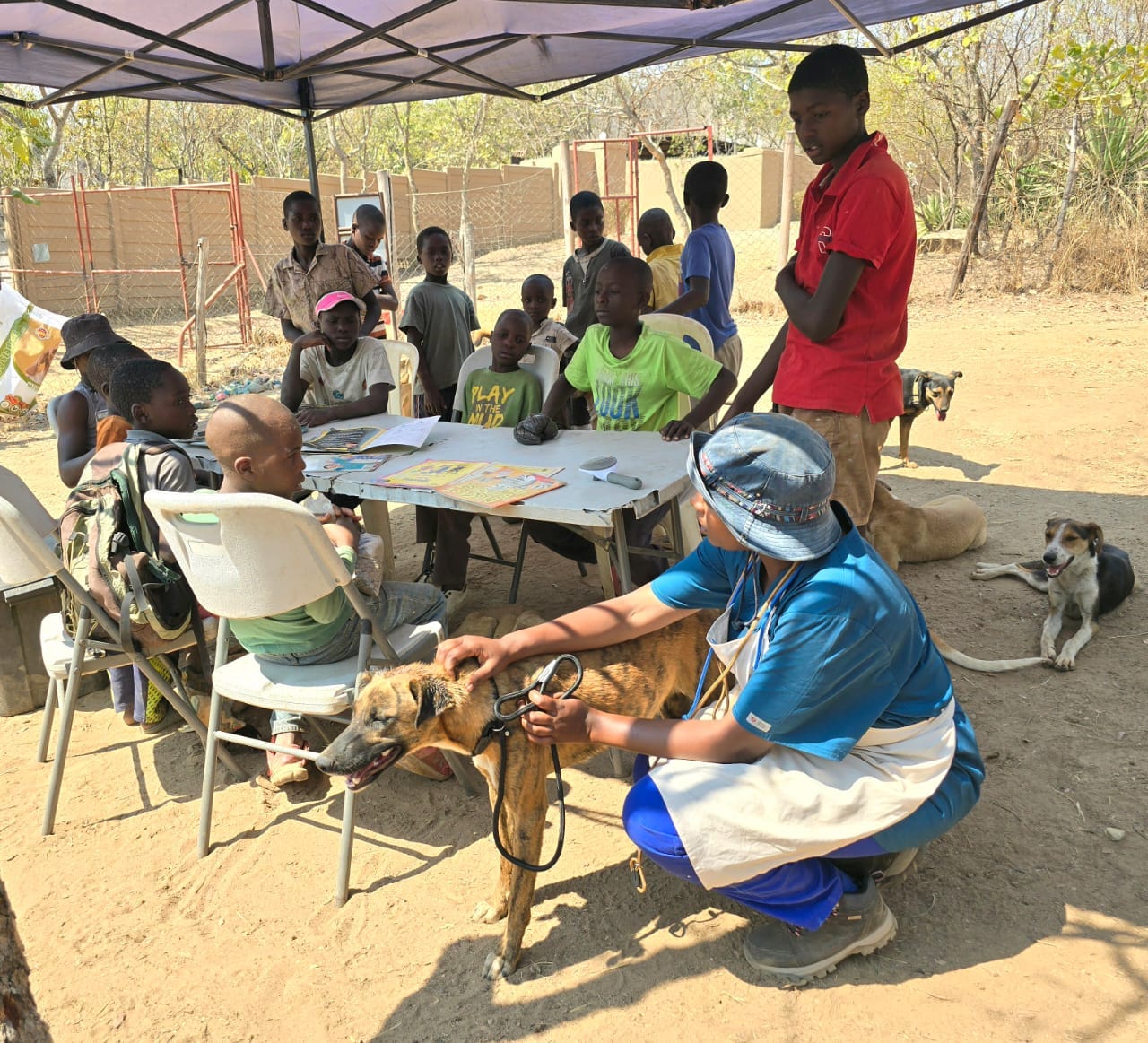
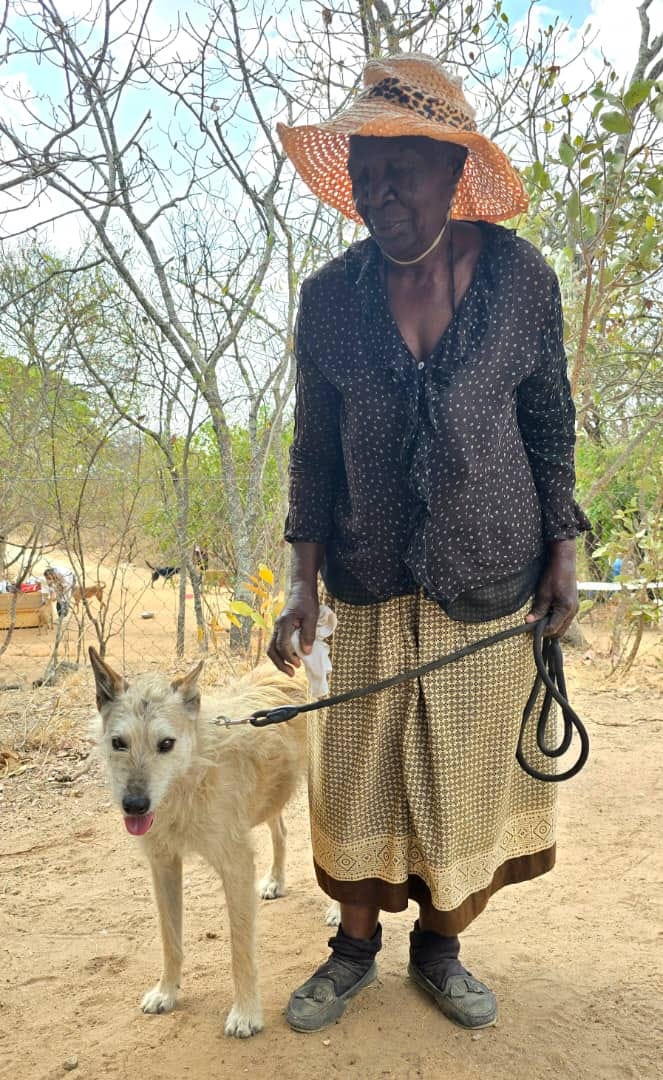

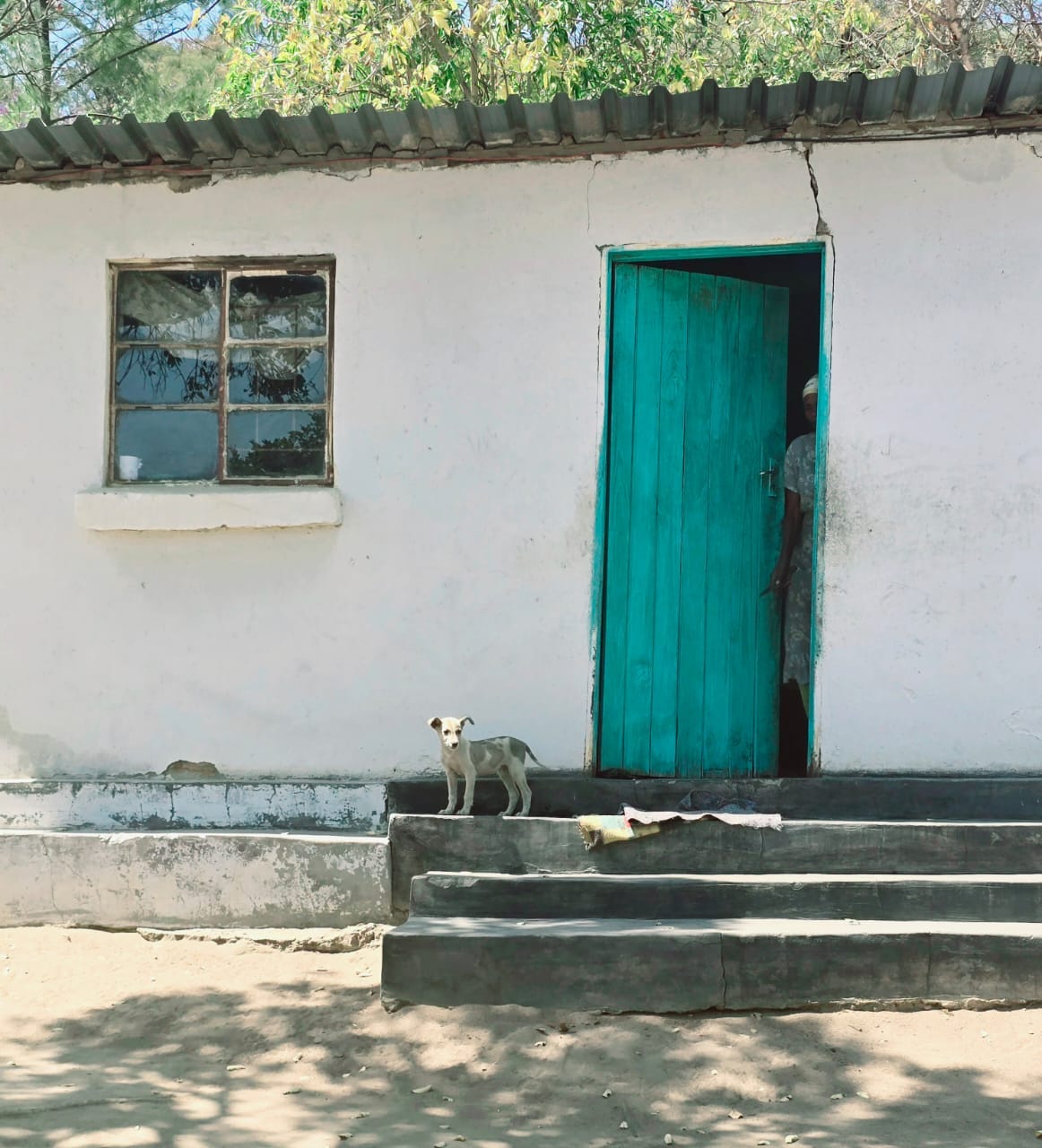
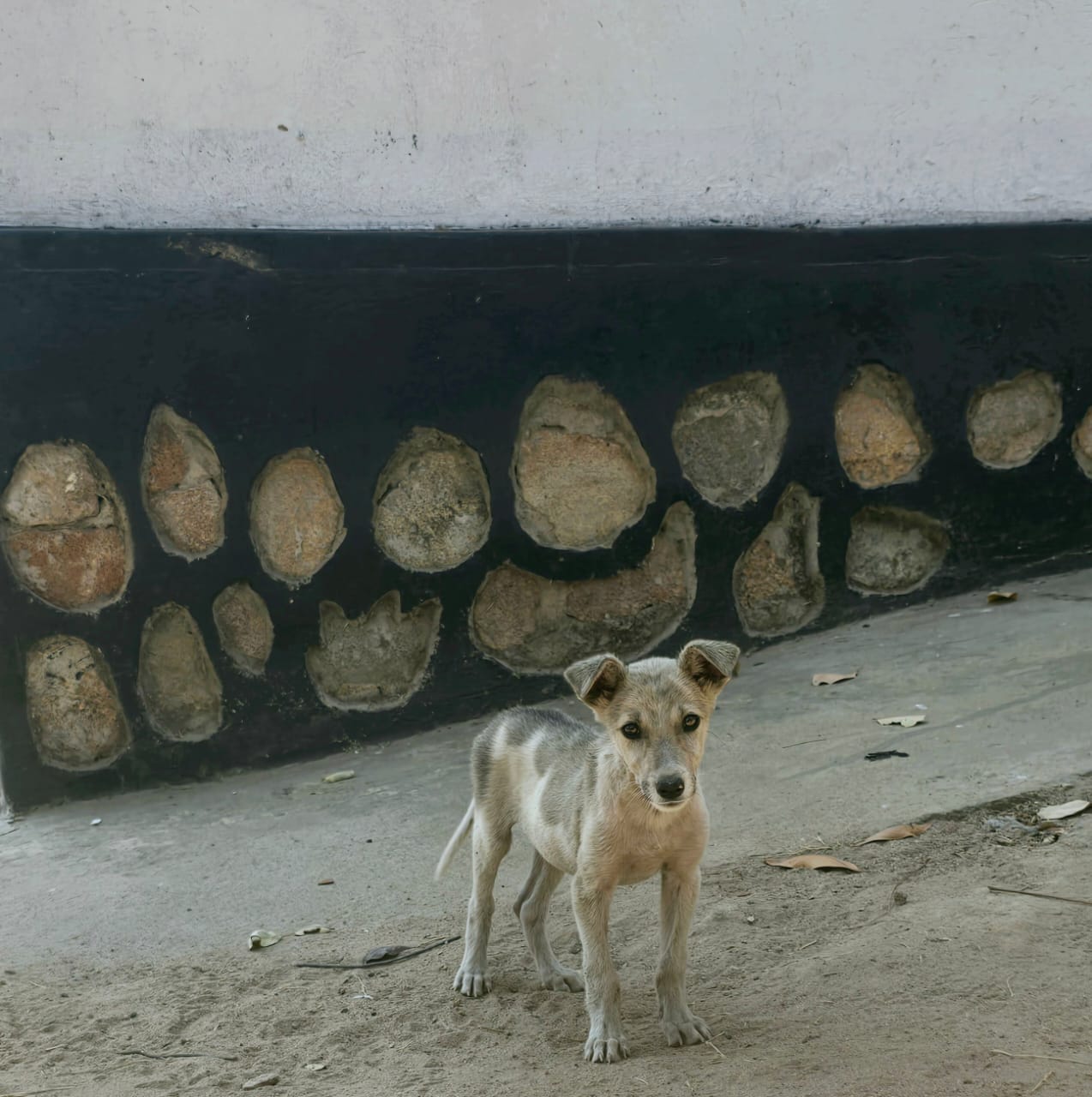
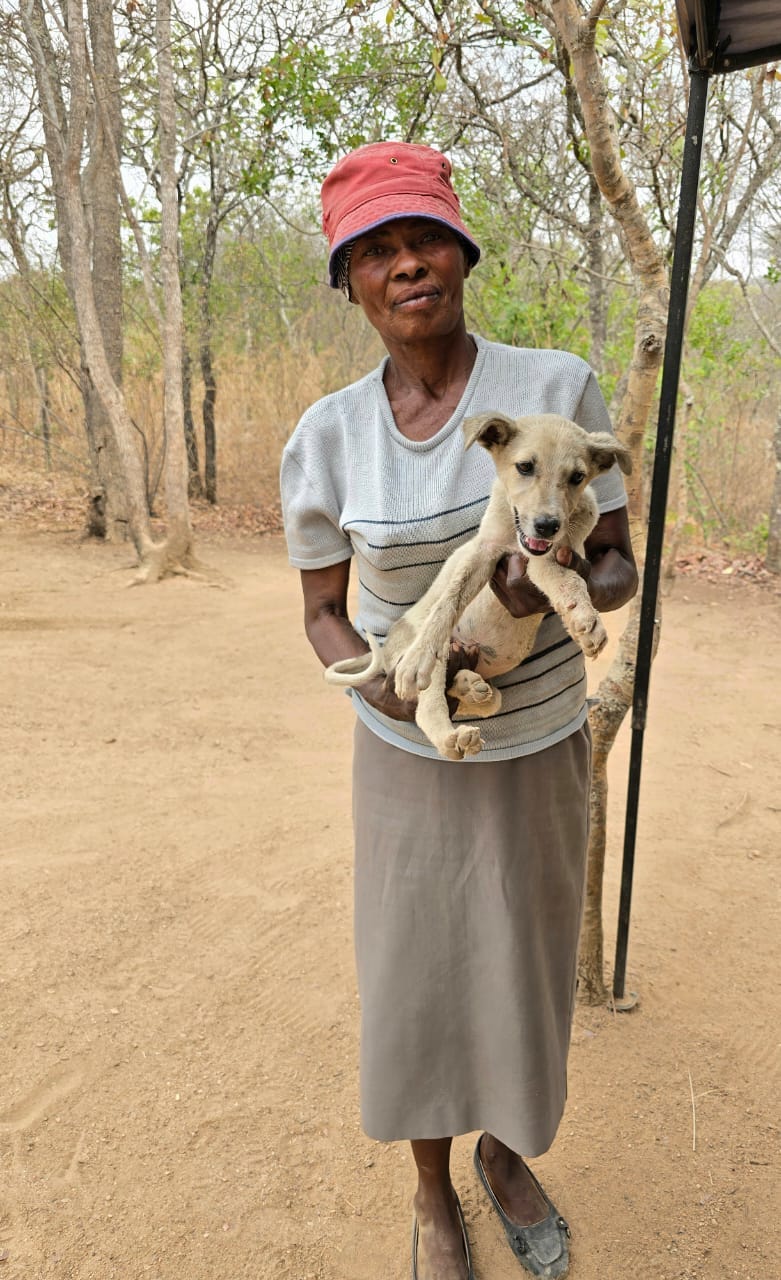
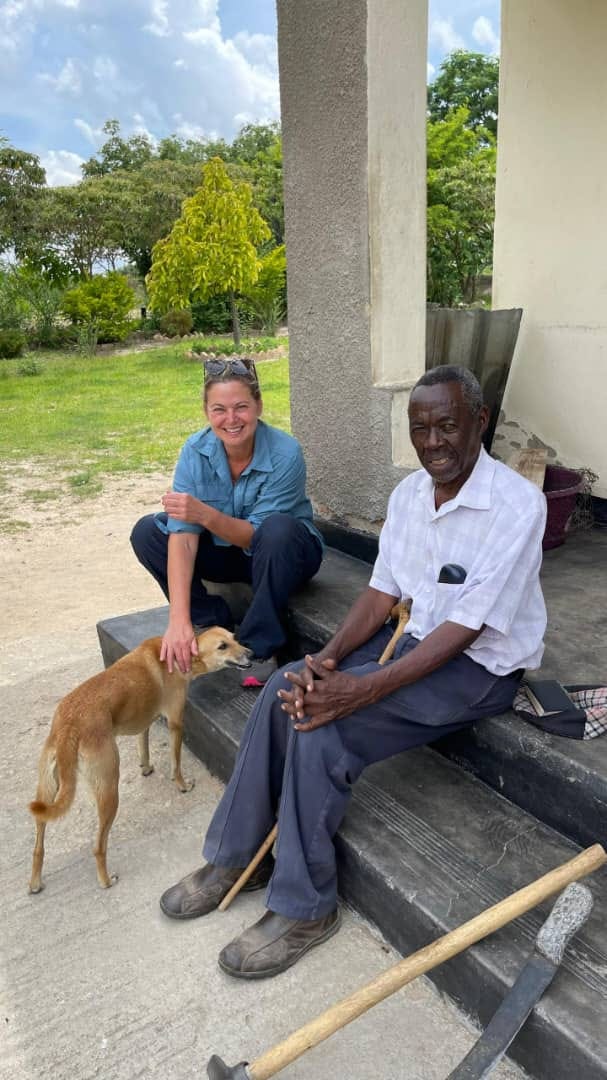
Thank you for sharing this message from Twala Trust and for bringing their work to life. Your writings have brought me comfort since my dog passed three weeks ago today. I've made a donation directly to Twala Trust today in honor of the anniversary of his death this week. Thank you again.
Hell David, thank you so much for sharing this story. Those animals are truly blessed for having such caring people to look after them and for the generous donations that you
and your readership have made.
I still long for that beautiful country.
True Bodhisattvas ❤️